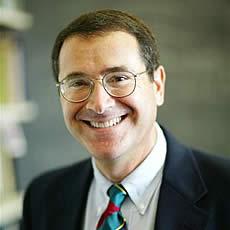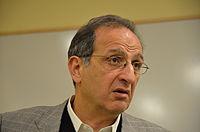M. L. King Day 2017: A Time for Principled Defiance
This M. L. King Day, 2017 is an especially important time for us to celebrate and emulate the principled defiance of Dr. Martin Luther King. Persistent, unapologetic – doggedly non-violent – Dr. King stood like a rock – defiant of the bigotry, racism and disenfranchisement of his time. Refusing to bend, he inspired a movement that changed America.
In May, 1940, much of the British army was surrounded by German forces – its backs to the sea on the beaches of Dunkirk.
In the face of looming disaster, Prime Minister Winston Churchill rallied his nation and called on his people to take matters into their own hands. In response, hundreds of Brits launched boats of every size, crossed the English Channel, and helped to rescue their surrounded soldiers.
For the British people, the evacuation of the Dunkirk was simultaneously one of the most perilous and heroic moments of World War II.Ordinary people stood in defiance of certain German victory, refused to accept defeat, helped assure that 330,000 British troops escaped certain disaster, and allowed the British Army to regroup and fight again.
Four years later – together with their ally the United States – many of those British soldiers joined the greatest armada in history as they once again crossed the channel. This time it was to mount the D-Day invasion that turned the tide of the war and ultimately defeated right wing authoritarianism in Europe three quarters of a century ago.The spirit of Britain’s defiance of certain defeat at Dunkirk was summed up by Prime Minister Churchill’s “Fight them on the Beaches Speech,” delivered to the House of Commons after the evacuation of Dunkirk was completed on June 4, 1940.
In it he said:
We shall defend our island, whatever the cost may be. We shall fight on the beaches, we shall fight on the landing grounds, we shall fight in the fields and in the streets, we shall fight in the hills…..we shall never surrender.
Today, many Americans prepare to confront our own brand of right wing authoritarianism. As Donald Trump stands poised to be sworn into office it is once again a time for Dr. King’s principled defiance.
Several weeks ago, my wife, Congresswoman Jan Schakowsky, hosted a rally in her district to mobilize her constituents to “Join the Resistance.”
It was a windy, bone-chilling, single digit day in Chicago. Still 1,400 gathered in at the Armory on North Broadway.
Jan’s speech began:
It is a cold day in Chicago. But it will be a colder day in Hell before we allow billionaires like Donald Trump and (Governor) Bruce Rauner to turn the United States of America into a low-wage plutocracy with no place for immigrants, or people of color, or labor unions, or women’s rights.
The emotional high point of her speech was when Jan, who is Jewish, said:
We need to be united – one for all and all for one – when there are attacks… If, God forbid, a Muslim registry – we must all show up to register and tell Donald Trump: “We are all Muslims.”
That brought all fourteen hundred people in the room to their feet in agreement and applause. “We are all Muslims” they chanted.
That is the spirit of principled defiance that must define our movement in the days and months ahead.
There are many pundits who believe it is a foregone conclusion that Trump and his Republican majorities in both Houses of Congress will repeal the Affordable Care Act (ACA). But if we fight hard enough and stand firm enough, that is not inevitable.
When it comes to the ACA, Republicans in Congress are beginning to hear from Americans with pre-existing conditions and chronic diseases who believe that they are alive today because the ACA saved their lives.
They are beginning to hear from the families that would have faced bankruptcy without the ACA.
They are beginning to hear from the tens of millions of Americans who would lose their health care coverage if the ACA were repealed.
They are hearing from the hospitals and health care providers in their districts that would be devastated.
They have begun to face the reality that if they act to repeal the ACA, many of those millions will blame them – personally – for taking away their health care. And it turns out that people get angrier when you take away something they have, than when you refused to give them something they wanted in the first place.
It is not inevitable that Donald Trump will be able to fill the open Supreme Court seat with a right wing ideologue who would vote to take away our right to vote, or to form unions, or to assemble to seek redress from our Government. That seat should have should have rightfully been filled by President Obama.
If Democrats in the Senate stand firm – and insist that any appointee to fill the seat stolen from President Obama must be filled by a person with the same stature and the same views as those an Obama appointee would have held – we can win.
Republicans only have 51 votes in the Senate that right now requires 60 votes to confirm a Supreme Court Justice. And it will be very hard for Republicans to permanently change the rules so that they could approve a Justice with a simple majority, since many of their own number realize that one day they too will once again return to the minority.
But when it comes to these, and other battles, what will be decisive is not what happens in Washington – but what happens in the states and Congressional districts across America.
Don’t let your Republican Senator or Member of Congress attend an event in your community without confronting them. Give them a first hand feel of the passion and defiance of their own voters.
There are few things more powerful in modern American politics than the combination of your Republican Member of Congress, passionate people and a video camera.
We need to follow the example of a man who is now known in Washington, DC as the conscience of the Congress – Congressman John Lewis.
Fifty years ago, John Lewis helped organize the campaign that ultimately resulted in the passage of the Voting Rights Act and ended decades of disenfranchisement for African Americans in many areas of our country.
Lewis stood on the Edmund Pettus Bridge in principled defiance of Selma, Alabama’s Sherriff Clarke, whose mounted police and local vigilantes beat him within an inch of his life.
Last week, John Lewis quietly but firmly said he did not believe that President Trump is a legitimate President – that there is real question whether the election was manipulated by a foreign power and whether or not there was collaboration between the Trump campaign and the Russian government.
A few days ago, the right wing “Washington Times” had a headline reading that “the Left is now permanently in the opposition.” Not unless we completely lose our democracy.That’s because most Americans are on our side.
The recent Quinnipiac poll showed President Obama with a 55% approval rating and Donald Trump at a dismal 37% -- lower than any President in two decades as they were being sworn in for their first term. And don’t forget that Hillary Clinton got 3 million more votes than Trump.
But more important, Americans support progressive values. They believe in unity, not division. They believe that we should build an economy that works for everyone, not just CEO’s and the wealthy. They believe in public education. They believe that health care should be a right not a privilege. They believe in the right to organize in the work place and negotiate your wages and working conditions. They believe that every American has the right to vote.
They believe that everyone – white, black, Latino, Asian…. everyone… is created equal and endowed by their Creator with the right to life, liberty and the pursuit of happiness. That’s everyone – not just the wealthy few. Not just people who are the right color or who are brought up in the “right” end of town.
My wife and I had the privilege of attending President Obama’s farewell address in Chicago. In his address, President Obama laid out his vision for an America that embodied those values. And he showed us the kind of dignity and character and decency that should be the hallmark of an American President.
Here is how he concluded his remarks:
My fellow Americans, it has been the honor of my life to serve you. I won’t stop; in fact, I will be right there with you, as a citizen, for all my days that remain. For now, whether you’re young or young at heart, I do have one final ask of you as your President – the same thing I asked when you took a chance on me eight years ago.
I am asking you to believe. Not in my ability to bring about change – but in yours.
I am asking you to hold fast to that faith written into our founding documents; that idea whispered by slaves and abolitionists; that spirit sung by immigrants and homesteaders and those who marched for justice; that creed reaffirmed by those who planted flags from foreign battlefields to the surface of the moon; a creed at the core of every American whose story is not yet written:
Yes We Can.
Yes We Did.
Yes We Can.
Thank you. God bless you. And may God continue to bless the United States of America.
In the months ahead, it is up us to stand up for that vision forcefully – defiantly.
This week, as Donald Trump takes office, it is up to us to regroup like the British troops who were rescued by their fellow citizens from the Beaches of Dunkirk – and return to the electoral battlefield in 2018 and 2020 to defeat our own, home-grown version of the authoritarian right -- just as they did 75 years ago.
Robert Creamer is a long-time political organizer and strategist, and author of the book: Stand Up Straight: How Progressives Can Win, available on Amazon.com. He is a partner in Democracy Partners and a Senior Strategist for Americans United for Change. Follow him on Twitter @rbcreamer.
















